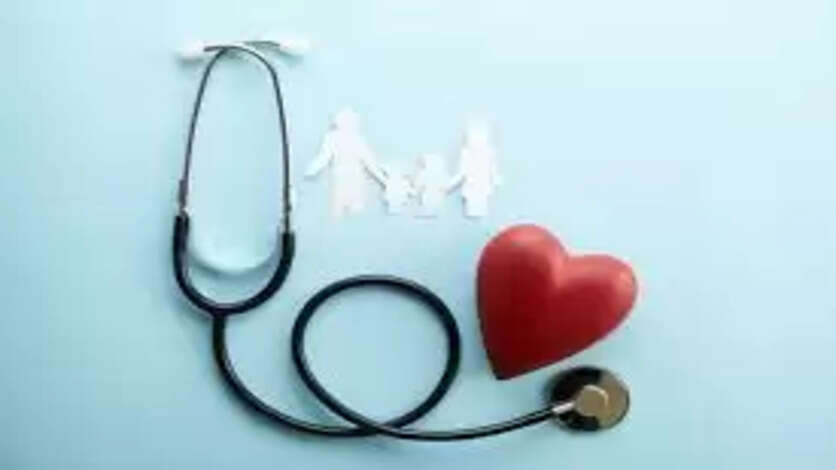Understanding Liver Health: Key to a Vital Life

The liver is one of the body's most essential organs, playing a crucial role in maintaining overall health. It’s responsible for numerous vital functions, including detoxification, metabolism, and the production of proteins necessary for blood clotting. Maintaining liver health is critical for ensuring that your body functions optimally. This article delves into the importance of liver health, common liver conditions, and tips for keeping your liver in good shape.
1. The Role of the Liver in the Body
The liver is often referred to as the body's "chemical factory" due to its wide range of functions:
a. Detoxification The liver processes toxins from the bloodstream, breaking them down and ensuring they are safely excreted from the body. This includes filtering alcohol, drugs, and other harmful substances.
b. Metabolism The liver is central to metabolism. It converts nutrients from the food we eat into essential blood components, stores vitamins and minerals, and even helps regulate blood sugar levels.
c. Bile Production The liver produces bile, a substance necessary for the digestion and absorption of fats and fat-soluble vitamins in the small intestine.
d. Protein Synthesis The liver synthesizes various proteins, including albumin, which helps maintain blood volume and pressure, and clotting factors, which are essential for preventing excessive bleeding.
e. Immune Function The liver plays a role in immune function, helping to resist infections by removing bacteria from the bloodstream.
2. Common Liver Conditions
Liver health can be compromised by various conditions, some of which are preventable through lifestyle choices:
a. Fatty Liver Disease Fatty liver disease is a condition where fat accumulates in the liver cells. There are two main types: non-alcoholic fatty liver disease (NAFLD), which is often associated with obesity and poor diet, and alcoholic fatty liver disease, caused by excessive alcohol consumption.
b. Hepatitis Hepatitis is inflammation of the liver, most commonly caused by viral infections (Hepatitis A, B, C) or long-term alcohol abuse. Chronic hepatitis can lead to liver damage, cirrhosis, or liver cancer.
c. Cirrhosis Cirrhosis is a condition where healthy liver tissue is replaced by scar tissue, which impairs the liver's ability to function. It is often the result of long-term liver damage due to hepatitis, chronic alcohol abuse, or fatty liver disease.
d. Liver Cancer Liver cancer can develop in the liver as a primary condition or spread to the liver from other parts of the body. Risk factors include chronic hepatitis, cirrhosis, and exposure to certain toxins.
e. Liver Failure Liver failure occurs when the liver is unable to perform its essential functions. It can be acute, occurring suddenly due to poisoning or infection, or chronic, resulting from long-term damage.
3. Tips for Maintaining Liver Health
Maintaining a healthy liver involves adopting a balanced lifestyle that supports its functions and minimizes harm:
a. Eat a Balanced Diet A diet rich in fruits, vegetables, whole grains, and lean proteins supports liver health. Avoiding excessive amounts of saturated fats, sugars, and refined carbohydrates can help prevent fatty liver disease.
b. Maintain a Healthy Weight Obesity is a significant risk factor for developing fatty liver disease. Regular exercise and a balanced diet can help maintain a healthy weight, reducing the strain on your liver.
c. Limit Alcohol Consumption Alcohol is a major cause of liver disease. Limiting alcohol intake or avoiding it altogether can significantly reduce the risk of developing liver conditions like fatty liver, hepatitis, and cirrhosis.
d. Stay Hydrated Drinking plenty of water helps the liver flush out toxins from the body. Proper hydration also supports overall metabolic function.
e. Exercise Regularly Regular physical activity helps maintain a healthy weight and improves liver function. It can also reduce the risk of developing conditions like NAFLD.
f. Avoid Toxins Minimize exposure to toxins that can harm the liver, such as certain chemicals, drugs, and environmental pollutants. Always follow the recommended dosages of medications and avoid mixing them with alcohol.
g. Practice Safe Sex and Hygiene Hepatitis B and C can be transmitted through blood, unprotected sex, and contaminated needles. Vaccination, safe sex practices, and good hygiene can reduce the risk of contracting hepatitis.
h. Get Regular Check-Ups Regular liver function tests can help detect early signs of liver disease. If you have risk factors for liver disease, such as a family history, obesity, or heavy alcohol use, regular monitoring is essential.
4. Signs of Liver Problems
While the liver is capable of regenerating and compensating for damage, it's important to be aware of potential signs of liver problems, which may include:
- Jaundice (yellowing of the skin and eyes)
- Chronic fatigue
- Dark urine
- Abdominal pain or swelling
- Nausea or vomiting
- Loss of appetite
- Easy bruising or bleeding
If you experience any of these symptoms, it's important to seek medical advice promptly.
Conclusion
Liver health is crucial for maintaining overall well-being, as the liver performs a wide range of vital functions. By adopting a healthy lifestyle, including a balanced diet, regular exercise, and avoiding excessive alcohol consumption, you can support your liver's health and prevent many common liver conditions. Regular check-ups and being mindful of symptoms can help detect and manage liver problems early, ensuring that this vital organ continues to function effectively throughout your life.
